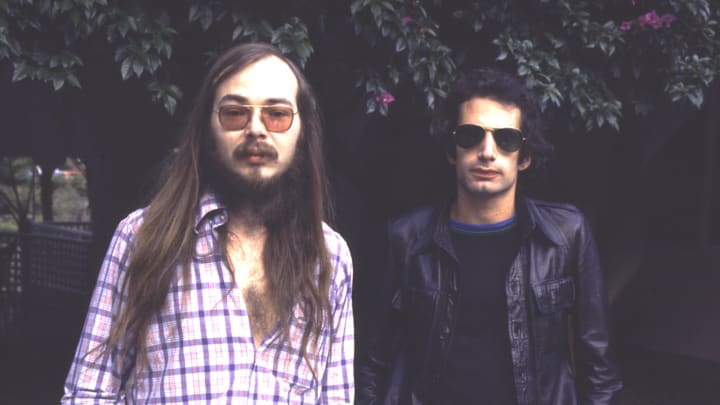Solo careers after parting, even temporarily, from a hugely successful band can be challenging. For every Phil Collins, there is a Joe Jonas. Of course, Collins wasn't just a fine singer but also a top-end drummer. He had more to work with.
Some solo careers that have gone astray are surprising. A couple of the people mentioned below are singers and should have been able to transpose their band's success to solo success as long as the tunes were right. As it turns out, they must not have been.
In other cases, the former band member might have been part of something where the sum was better than their parts. The performer isn't bad, but certainly not great. At least, the public did not think so.
6 solo music careers that flopped
Walter Becker of Steely Dan
Maybe those who find the magic in the jazz-rock of Steely Dan truly prefer Donald Fagan more than Walter Becker. After all, Fagen had some hits as a solo artist while Becker was a dud. Three of Fagen's four solo studio albums reached at least number 12. Becker's two solo records did not fare nearly as well.
Oddly, Fagen produced Becker's 11 Tracks of Whack from 1994, as the two performers remained friends. But Becker's album seemed excessive, trying to fit too many sounds into 12 songs. Critics were OK with it because it was somewhat experimental, but the general population was not as forgiving.
Joe Perry of Aerosmith
When one thinks of the voice of Perry's popular band, Aerosmith, they do not think of Perry but of Steven Tyler. It's always tough for a guitarist who doesn't sing many of his band's tunes to suddenly ask to be loved when he produces a solo record.
Perry's 2005 self-titled LP only reached No. 110 and produced no hits. The album offered several nice guitar solos and anthemic choruses, but not enough to elevate the overall project. Perry did put out a Christmas EP in 2014 that is about as good as you'd expect.
Steven Page of Barenaked Ladies
Poor Steven. Seriously. He helped form the fantastic alternative rock band Barenaked Ladies, but then had some issues with drugs in the 2010s, and he and the band parted ways. Some of that was allegedly due to the group wanting to record an album and Page not wanting to. The problem for fans is that Barenaked Ladies were always best with Page and Ed Robertson playing off each other.
Page's solo career has gone without note. He wrote a musical called Here's What It Takes, but COVID-19 shut down production. He performed with his old band once, but there was no planned long-term reunion, and that was seven years ago. Speaking for Barenaked Ladies fans everywhere, we wish the band and Page could work things out again.
KISS (every member)
How much do you love those Gene Simmons records you own? Or what about the Paul Stanley ones? The truth is that while each member of KISS brought something unique, they needed each other to bring out their individual best.
In 1978, the group tried something interesting when they each released solo albums. None were good. Stanley needs Simmons, and Simmons needs Stanley. They aren't terribly memorable apart, but they are unforgettable together.
Dennis DeYoung of Styx
DeYoung might have always felt a little too theatrical. There is nothing wrong with that as long as one can mix the themes with the music. For instance, Freddie Mercury and David Bowie might have brought part of the stage with them, but they rocked out, too.
Without Styx, DeYoung seemed one step away from being something like Michael Bublé, without the same charisma. Strangely, DeYoung did have a top-10 hit on his solo debut Desert Moon, but he never came close to that again. Lately, he has been complaining about his former band, with which he will probably never sing again.
Daryl Hall of Hall and Oates
The odd part for Hall's lack of solo success is that he could have continued to sound pretty much the same as he did with his long-time bandmate Oates. Oates offered something to the duo, but the reason for the high-level success was the blue-eyed soul of Hall's voice. That would remain the same with or without John Oates.
His best chart appearance as a solo performer was at 29 in 1986 with his album Three Hearts in the Happy Ending Machine. That is a weird title for a record, and he might have done better with a better title. Or maybe people had moved away from Hall's style in mass consumption.
